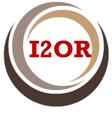Optimal Number of Service Providers in a Queuing System
Abstract
Manufacturing and service organizations make use of the queuing theory, not only to reduce the waiting time of their customers for optimal decision-making while determining the level of resources required for investment but also to meet the customers’ satisfaction as much as possible. This is particularly important in the economic sustainability of companies in competitive environments. In most cases, companies face some troubles in determining the number of staffs. In this regard, the current study proposes different solutions to different potential problems. These solutions include the use of the coefficient of productivity, Markov systems, non-Markov systems and simulation tools. All the solutions presented in this paper have been used in a case study for a company in the service sector. The results show that our system can respond to the customers using five service providers such that customers would stay in the system less than or equal to one day. The results are also relatively close to each other which indicate that we can use each of these solutions to determine the number of service providers.
Downloads
Published
Issue
Section
License
Copyright Policy:
All Rights Reserved for International Journal of Applied Optimization Studies (IJAOS).













 Telegram
Telegram  Twitter
Twitter Facebook
Facebook  Google Plus
Google Plus  Email
Email  Linkedin
Linkedin 